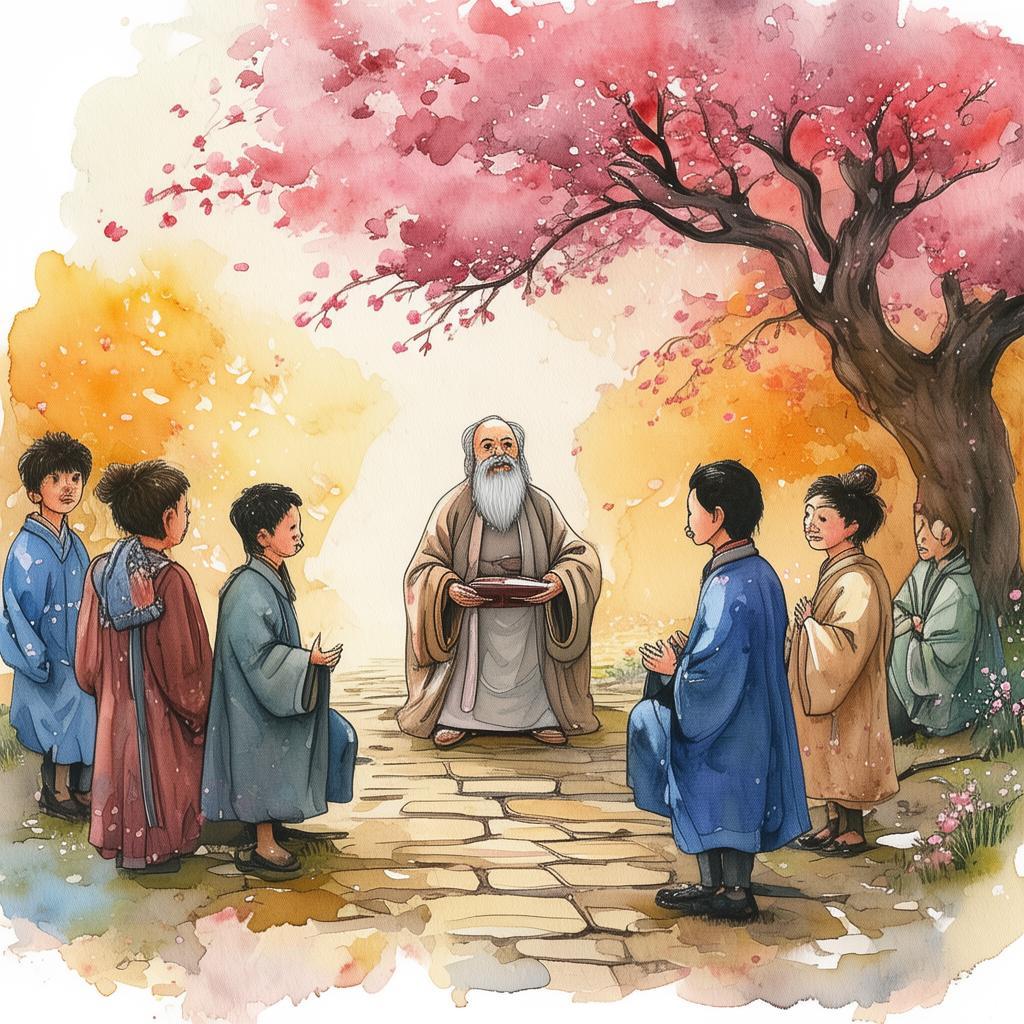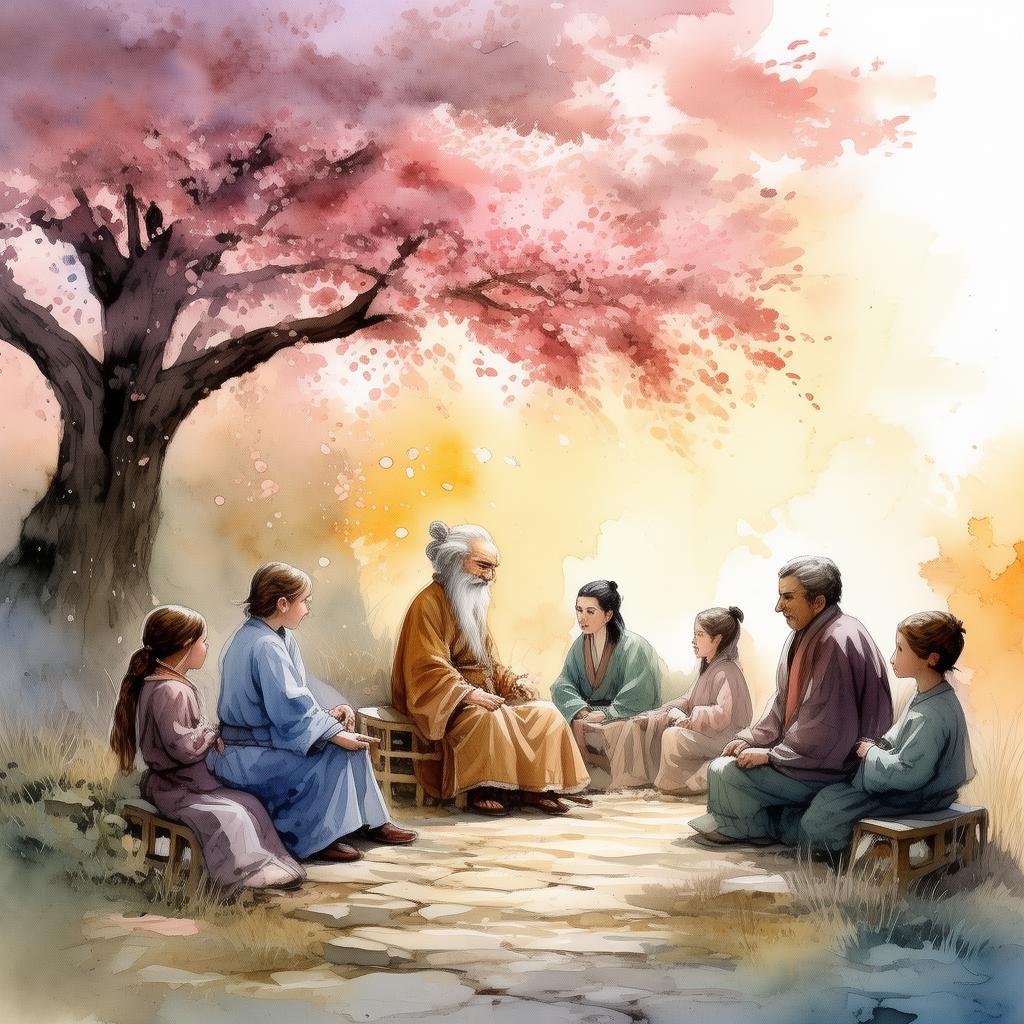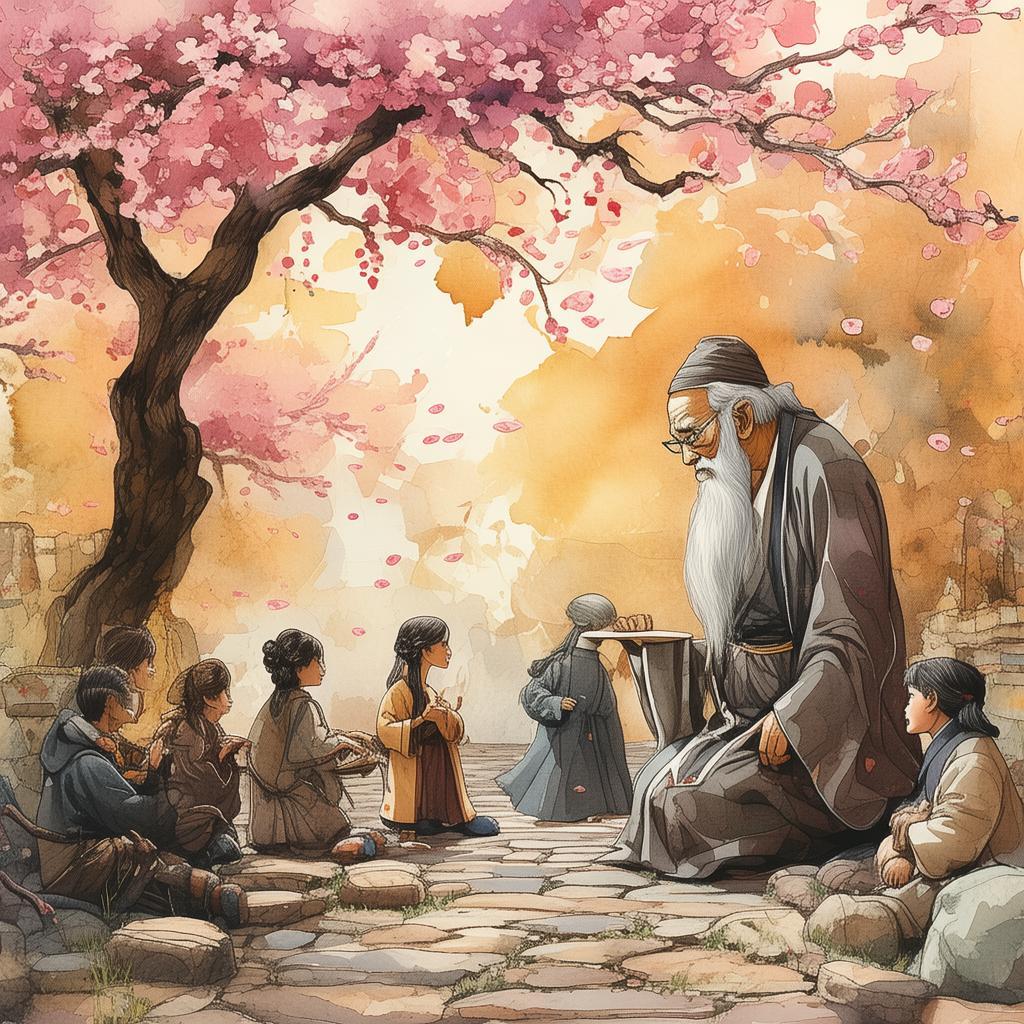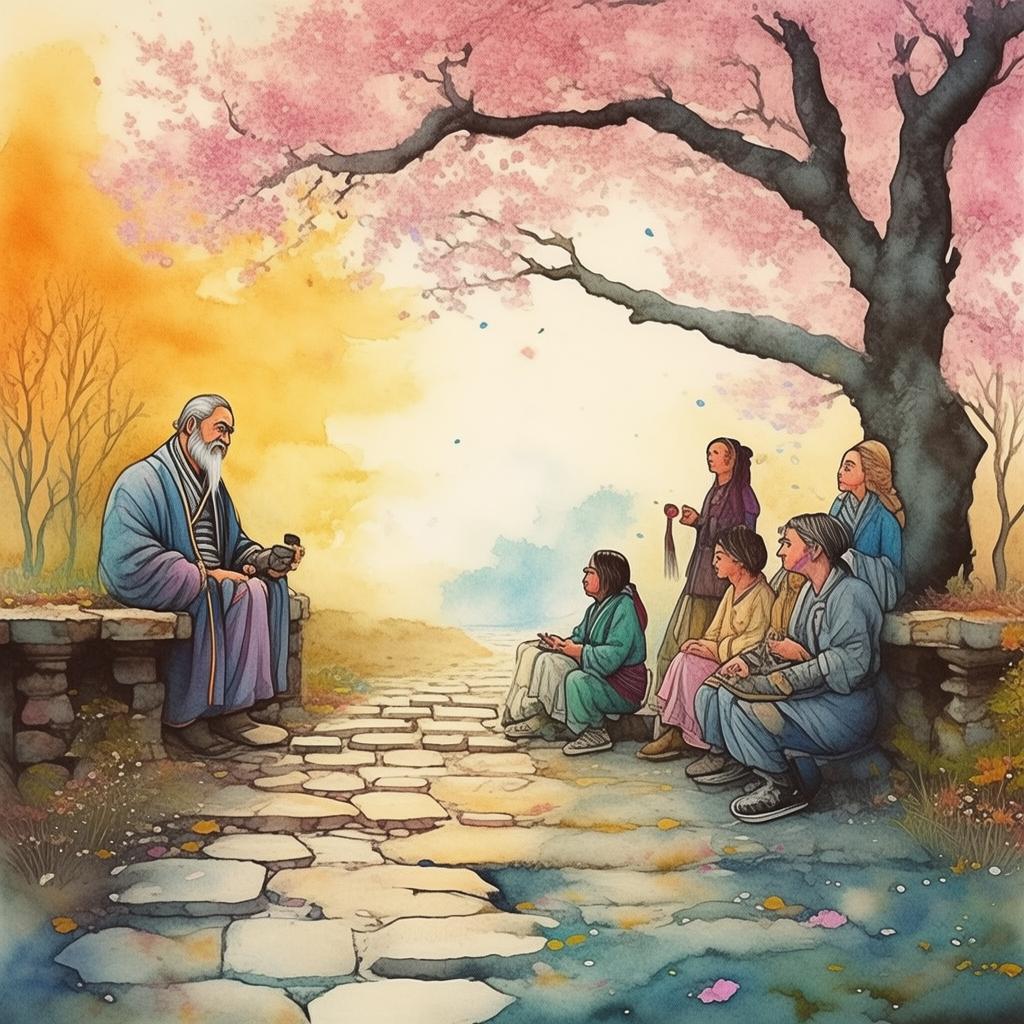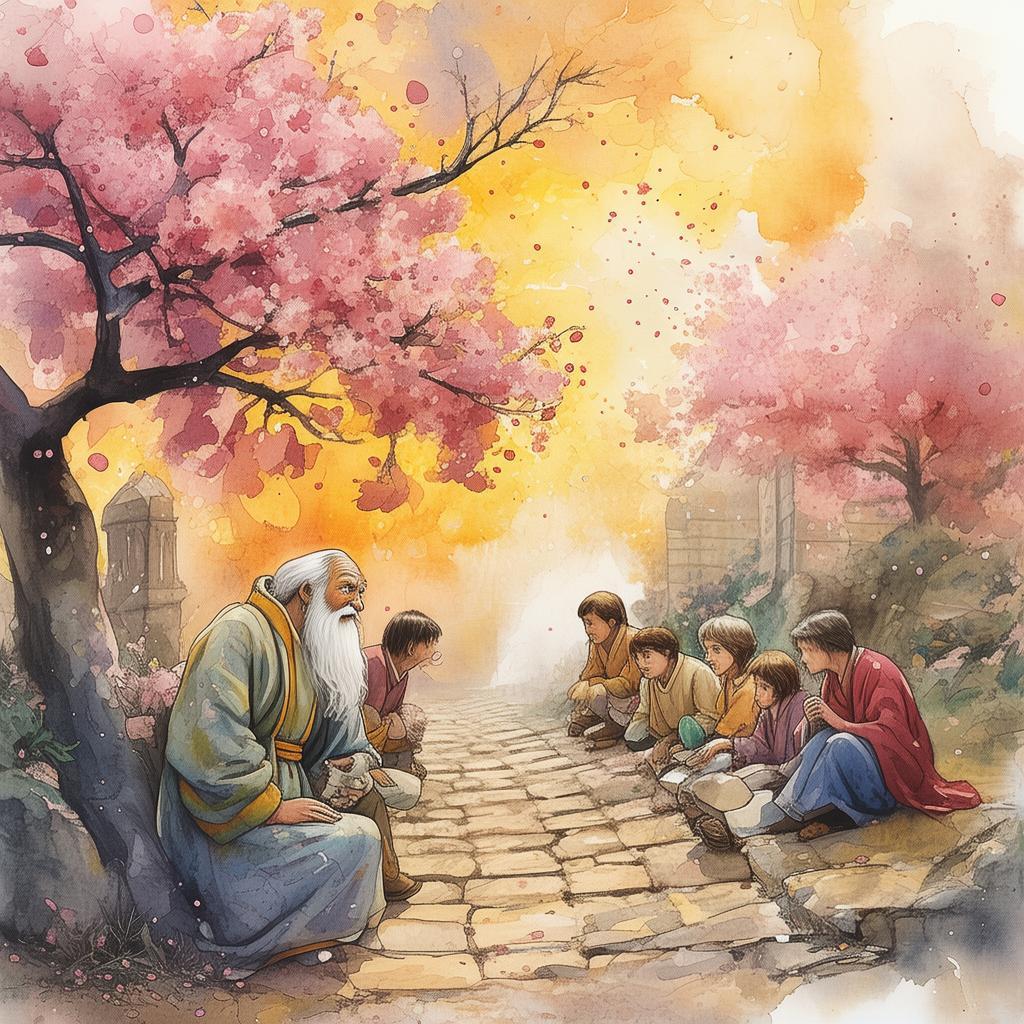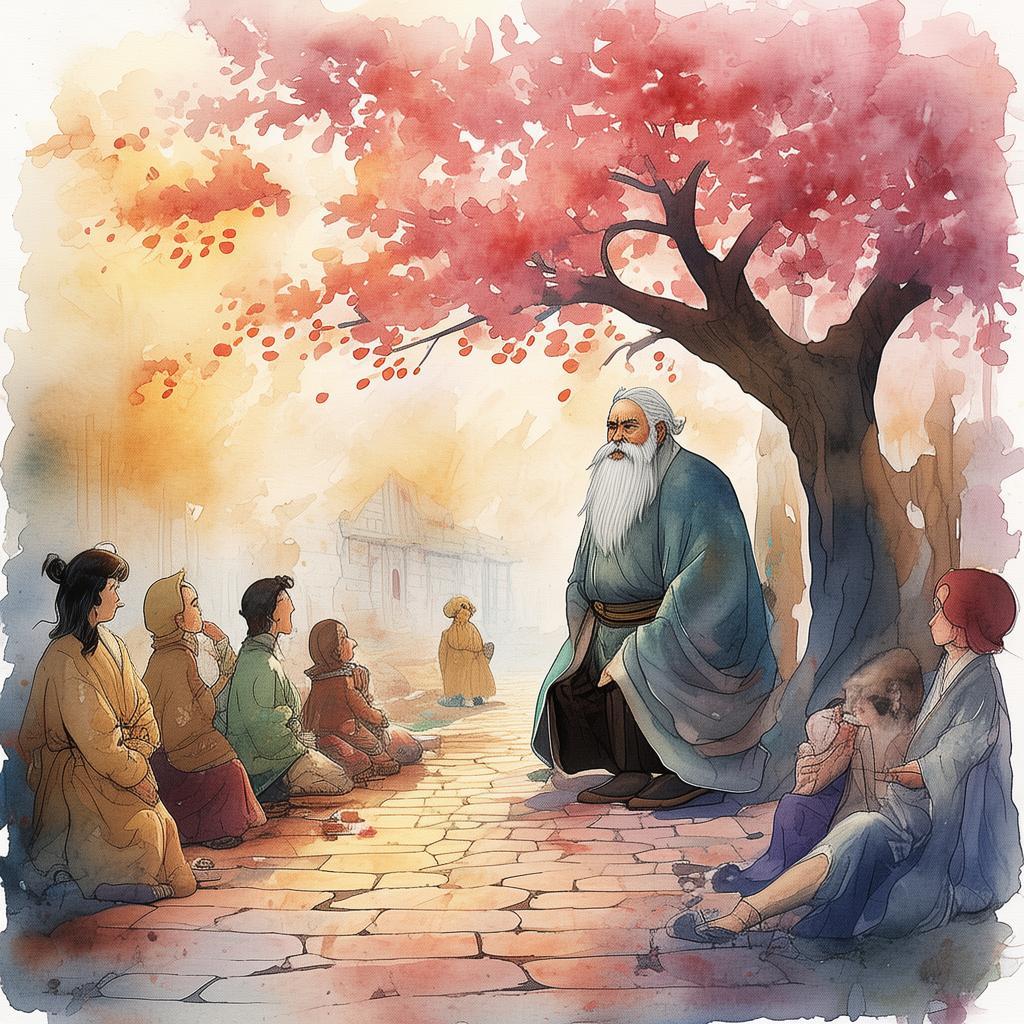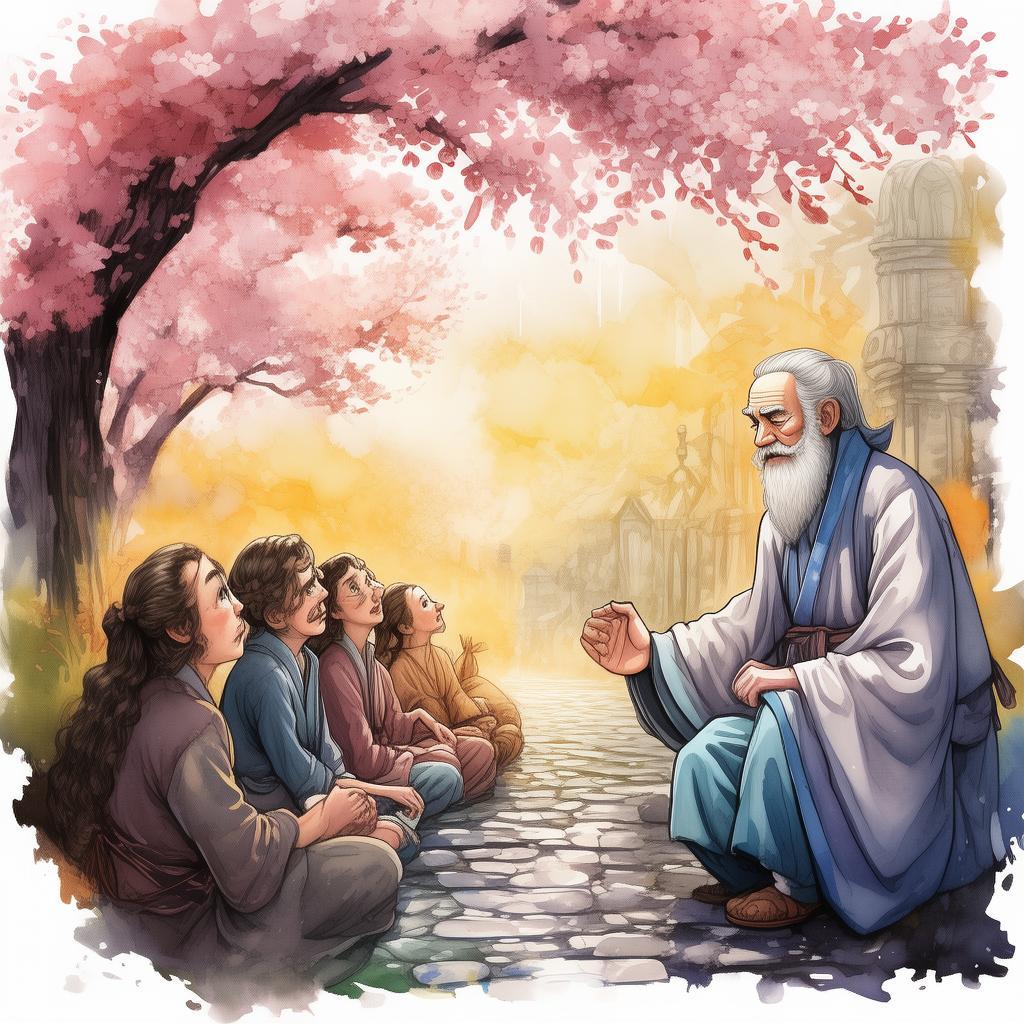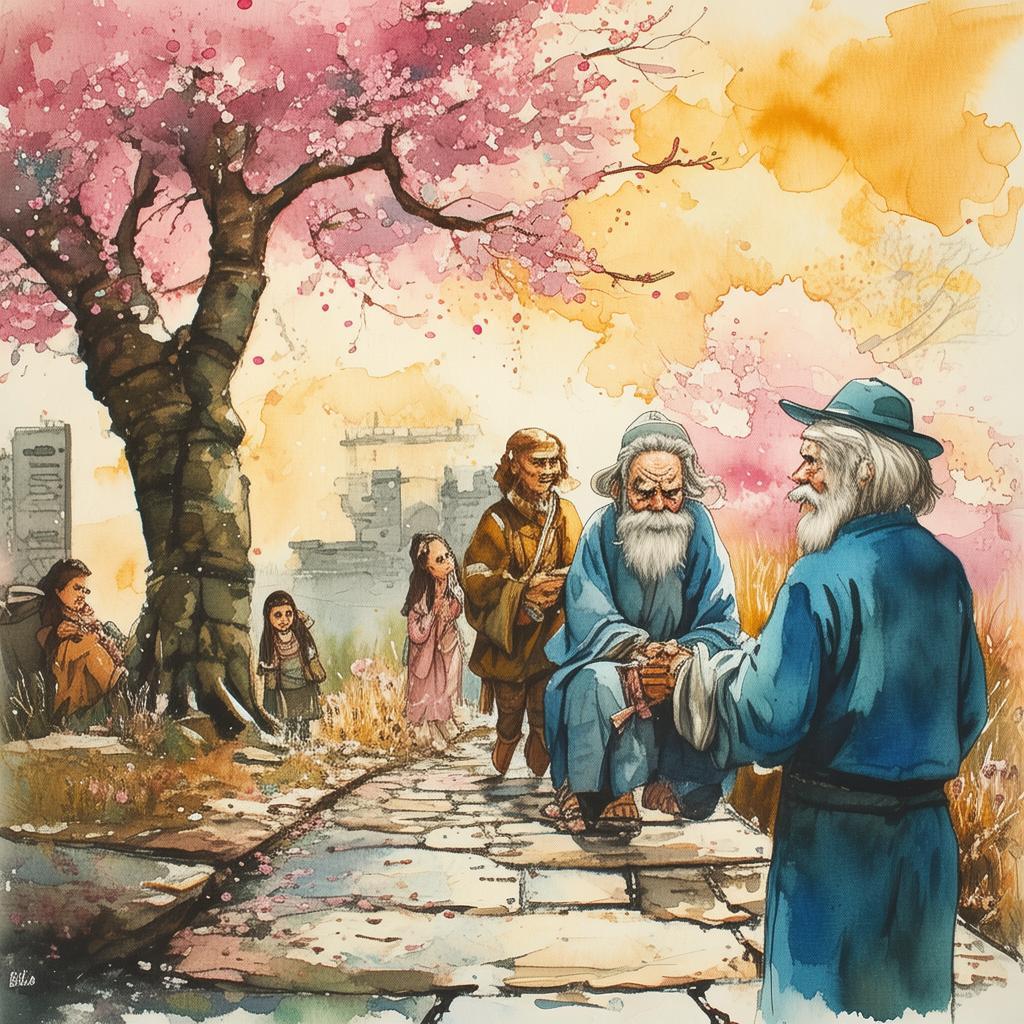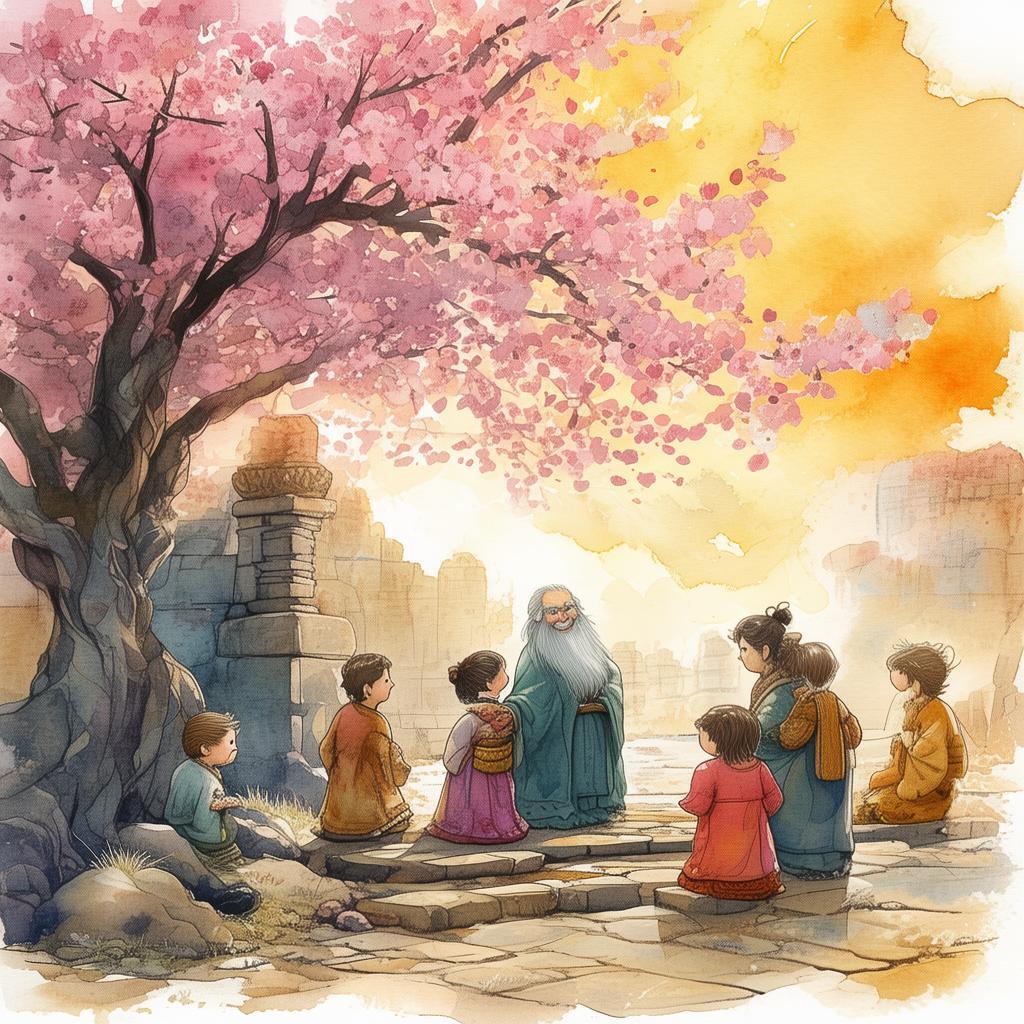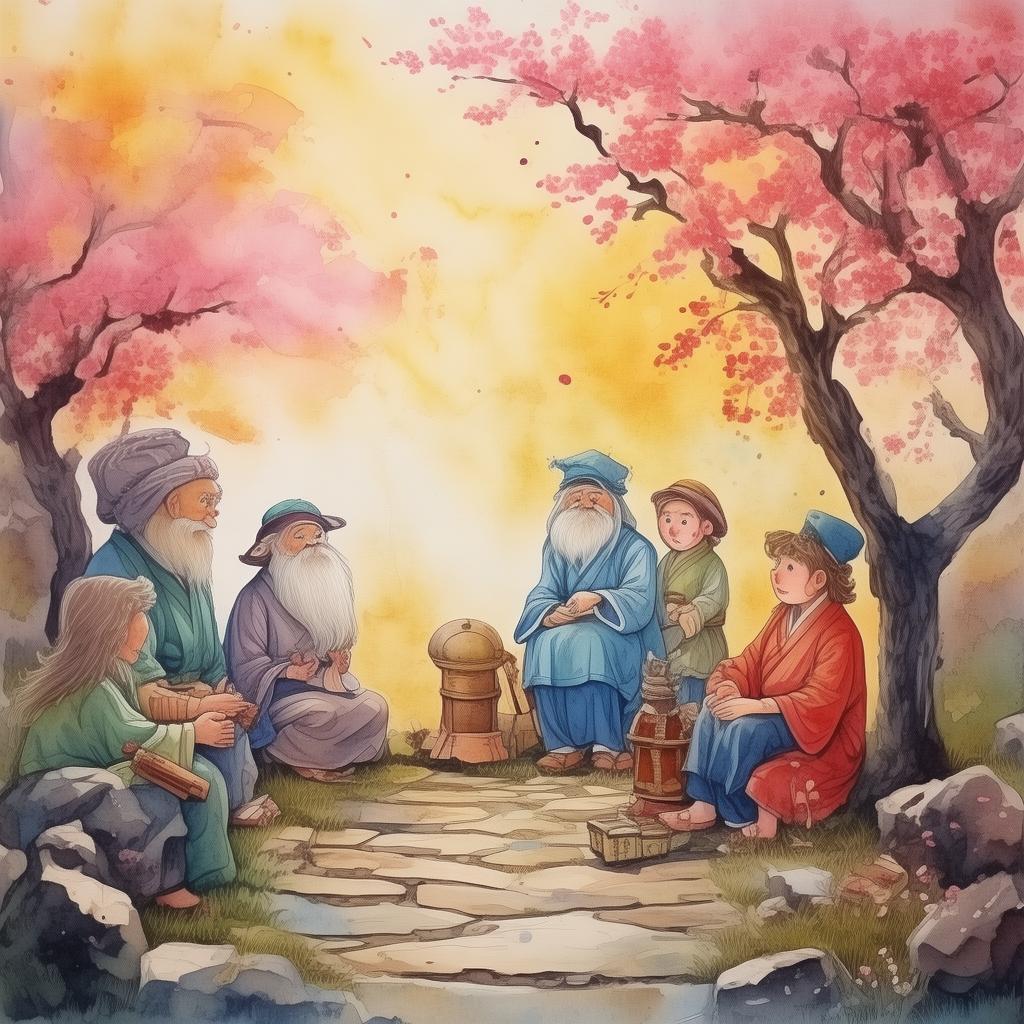The Monk's Labyrinth of the Mind: A Journey Beyond the Known
In the ancient mountains of the Eastern Peak, nestled among the whispering pines and the rustling leaves, there lived a monk named Zhiyi. His hair was shaven, his robes a patchwork of various colors, and his eyes held the quiet intensity of one who had seen the depth of the boundless mind. Zhiyi was no ordinary monk; he had spent years in the temple, meditating, studying, and seeking enlightenment. But he felt a void within him, a chasm that could not be filled by the teachings of the scriptures or the quietude of the temple.
One day, while meditating beneath the ancient bodhi tree, Zhiyi had a revelation. His mind, which had always been a sanctuary of calm, now seemed like a labyrinth, each turn leading to new depths of confusion. The teachings of the Buddha, once clear and guiding, now seemed like shadows in the dark. He realized that his journey to enlightenment was not just about understanding the words of the sages but about facing the labyrinth of his own mind.
With a resolve as unwavering as the ancient mountains, Zhiyi set out on a pilgrimage. He traveled far and wide, seeking guidance from the wisest of monks and the most enlightened of thinkers. But no matter where he went, the labyrinth remained, a silent challenge that none could solve for him.
It was during his journey that Zhiyi heard of a monk named Hui Neng, who had once resolved the labyrinth of his own mind. Zhiyi's heart leaped with hope. If Hui Neng could do it, then perhaps he could too. He made his way to the temple where Hui Neng had once lived, a place known as the Infinite Monk's Labyrinth.
The labyrinth was a vast expanse of interconnected paths, each one leading to a different chamber, each chamber housing a different truth or illusion. The air was thick with the scent of incense and the sound of distant monks chanting. Zhiyi entered, his heart pounding with anticipation and fear.
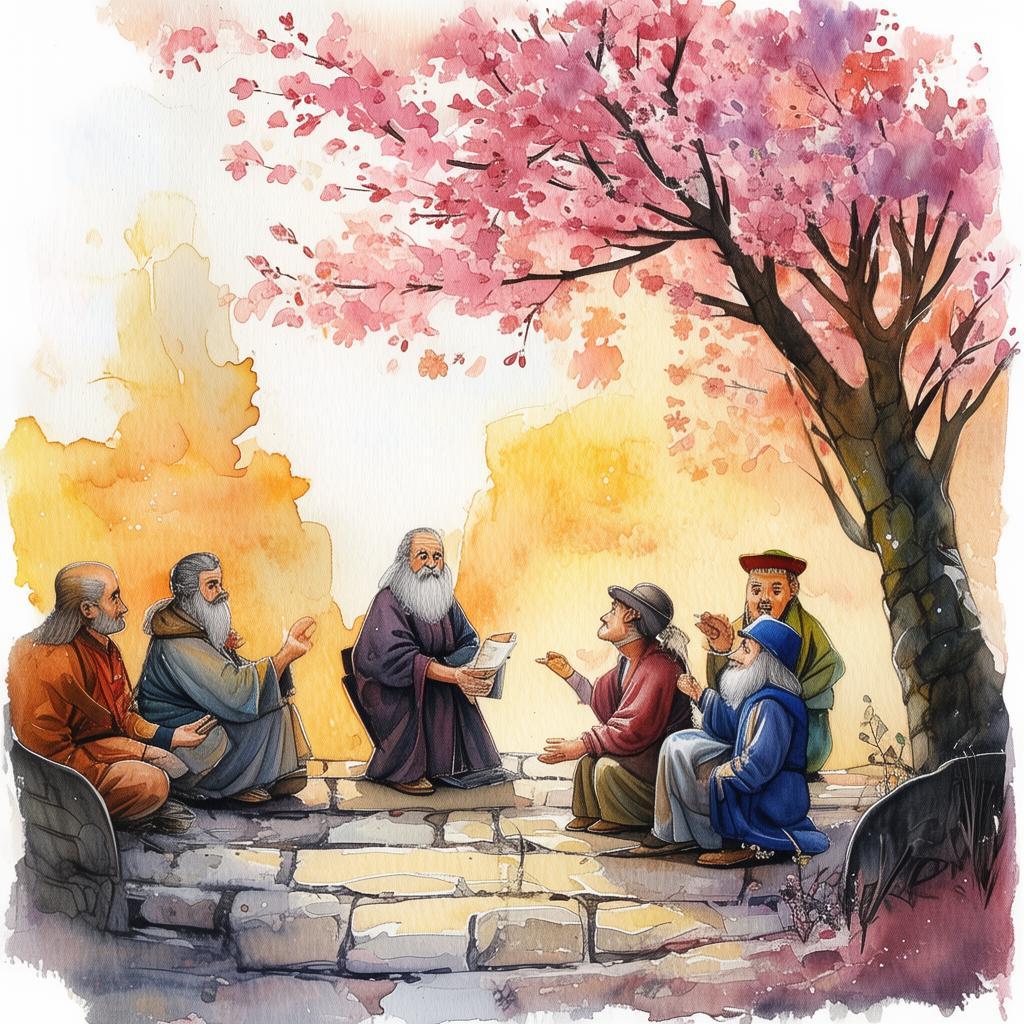
The first chamber he encountered was filled with mirrors, each reflecting a different version of him. He saw the young monk who had once taken his vows, the middle-aged monk who had sought enlightenment, and the old monk who had finally realized that enlightenment was not about becoming something more or less but about seeing the world as it truly was. The illusion was stark and undeniable. Zhiyi realized that his journey was not just about finding enlightenment but about accepting his own journey.
The next chamber was a room of echoes, where every sound he made was amplified and repeated. It was a room of judgment, where his own voice would constantly berate him for his failings. Zhiyi spent hours in this room, learning to quiet the voice of doubt and to listen to the silence within.
The third chamber was a room of fire, where every path was lined with flames. It was a test of courage, of facing the fear of the unknown. Zhiyi walked through the flames, his heart pounding, his resolve unyielding. In that moment, he understood that fear was a construct of the mind, an illusion that could be overcome.
As Zhiyi continued his journey, he encountered other monks, each one facing their own challenges within the labyrinth. Some sought to find a way out, while others embraced the journey, understanding that the labyrinth was a reflection of their own minds, a place where they could confront their fears and doubts.
Finally, Zhiyi reached the heart of the labyrinth, a room where a single, ancient tree stood, its roots entwined with the very fabric of the labyrinth. Zhiyi approached the tree, his mind empty, his heart open. He realized that the labyrinth was not a place to escape from, but a place to be embraced, a place where he could finally see the truth of his own mind.
Zhiyi placed his hands upon the tree, feeling the life within its roots. In that moment, he understood that enlightenment was not about finding the answers but about asking the right questions. It was not about escaping the labyrinth of the mind but about understanding it.
He turned to leave, his heart filled with a newfound clarity. The labyrinth, once a source of confusion and fear, was now a place of peace and understanding. Zhiyi had faced the boundless mind, and in facing it, he had found his own boundless potential.
As he walked away from the Infinite Monk's Labyrinth, Zhiyi's presence was no longer that of a seeker but that of one who had found. He returned to the temple, his story a testament to the boundless nature of the mind and the endless possibilities that lay within.
And so, the monk's labyrinth of the mind became a place of pilgrimage for those who sought to understand the depths of their own consciousness, a place where they too could embark on a journey beyond the known, finding within themselves the boundless mind.
✨ Original Statement ✨
All articles published on this website (including but not limited to text, images, videos, and other content) are original or authorized for reposting and are protected by relevant laws. Without the explicit written permission of this website, no individual or organization may copy, modify, repost, or use the content for commercial purposes.
If you need to quote or cooperate, please contact this site for authorization. We reserve the right to pursue legal responsibility for any unauthorized use.
Hereby declared.
